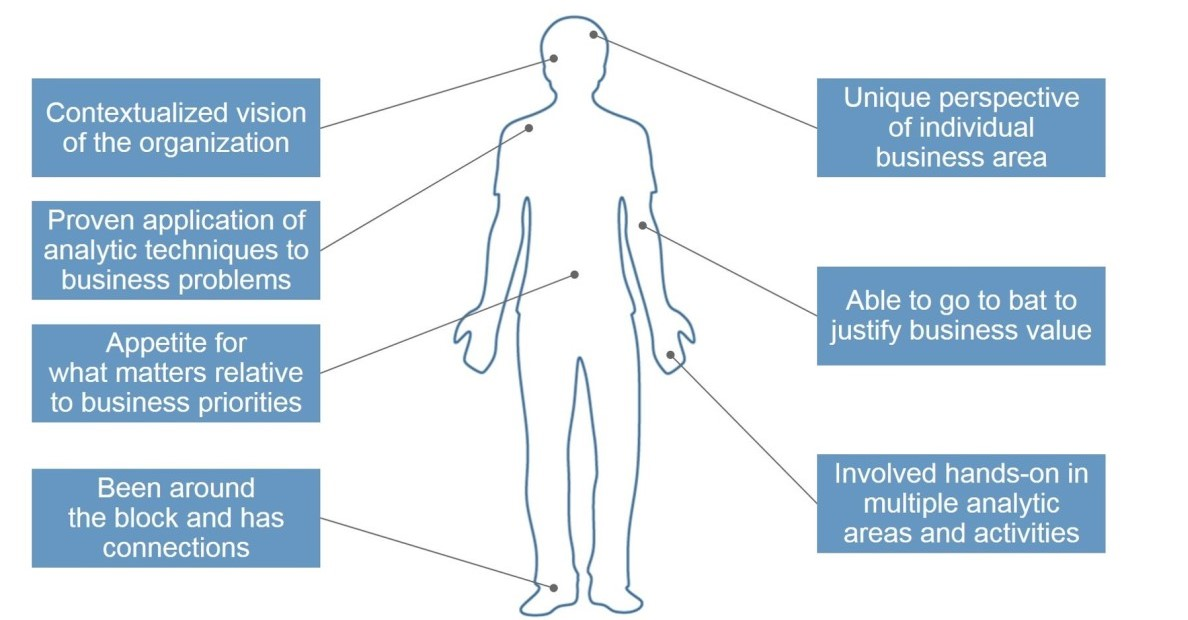Gartner defines Citizen Data Scientist as a person who develops/generates analytical models that use advanced analytics or predictive and prescriptive capabilities, but whose primary job function is outside the field of statistics and analytics. ( “Citizen Data Science Augments Data Discovery and Simplifies Data Science” )
In the light of Gartner’s definition, as a professional believing that Citizen Data Science approach makes Data Science and Advanced Analytics concepts accessible to a wider audience, my aim in this article is to describe Citizen Data Scientist and the basics of this role with questions and examples from different domains.
Let’s start with the very first two questions:
What is Citizen Data Science?
The Citizen Data Science, which has more or less similar but many different definitions, is defined as “The discipline that fills the gap between the development / application of Advanced Analytics methods performed by the Expert Data Scientist role and the role of Self-Service Data Analytics“. Based on this definition, Citizen Data Science approach can be used even in larger organizations for discovering new data, carrying out routine and applicable analytical tasks and adopting analytical approaches by wider users.
Who is Citizen Data Scientist?
With an alternative definition to Gartner’s, Citizen Data Scientists are powerful users who do not have deep math/stat and coding expertise but can adopt and internalize emerging technologies to meet the (medium to advanced) analytical needs required by their roles, eliminate dependencies on IT teams and enrich the process with their own deep business expertise.
For example, any earthquake researcher who aiming to understand earthquake behavior and tries to estimate a future effect can be named as also Citizen Data Scientist. Because she/he does not have to have a math/stat background and not responsible from new technical/theoretical developments but need to use Data Science approaches effectively to be able to analyze earthquakes with strong earthquake domain knowledge.
The Rise of Citizen Data Scientist
The main idea behind the rise of Citizen Data Scientist role can actually be explained with the most basic supply-demand principle of the economy. Since we are in AI Era and the volumes and coverage of Data are increasing day-by-day and so directly the demand of Data Scientists who can gather info and value form data is also increasing. But on the other hand, the supply of Data Scientist is not increasing as much. This demand-supply shortage led professionals question about their actual needs, and search for new alternative solutions.
This questioning brings Citizen Data Scientist and effective Citizen Data Science platforms on table, such as KNIME. This is already the natural consequence of developing technology and AI. Those platforms direct users with end-to-end automated solutions and enables Citizen Data Scientists to use them for leveraging value from data for multiple purposes. On the other hand, the use of such Citizen Data Science platforms bring efficiency and accelerate the end-to-end Data Science process with their pre-defined functionalities.
Citizen Data Science in Different Domains
As an alternative to earthquake researcher case, I would like to mention two different cases from different industries that Citizen Data Science ease the extract gain from data.
Case 1: Marketing in a Bank is one of the most important areas for use of Data Science tools to gain most proper information to identify true customer and manage campaigns most effectively. So, a team of marketing analysts has to use several advanced analytics methods and ML model tools for daily tasks and projects. But they do not have to be expert data scientists coming from math/stat background, they only need to use these technology tools combining with their marketing expertise. That brings the Citizen Data Scientists into the game, powerful Data Science users with strong marketing experience.
Case 2: HR department of an Automotive Firm having more than 300K employees worldwide needs to adopt analytical tools to correctly estimate employee performances and advanced analytics for 4K positions. Specialists working at this department have deep business understanding on the performance measurement and position requirements. Using automated Data Science technologies, HR specialists with a Citizen Data Scientist role can run required analyses and manage advanced analytics processes to measure the performance of quite a huge number of employees.
In the Era of AI, everything is becoming more and more automated day-by-day. Nowadays, being perfect only at coding becomes less meaningful, most of the programs have their own automatic coding extensions like Python’s Jupyter Notebook (Text2Code ). Therefore trying to understand technical and theoretical basics behind your needs and using technology is just enough to do your job effectively.
To sum up, I tried to explain the importance of Citizen Data Scientists for different domains. There are different platforms aiming to develop the idea of Automation in Data Science. I am using KNIME and exploring its many capabilities and still surprising from time-to-time when I see what it can do. You can give KNIME a try or any other one, but you should try at least one of such platforms.
I am also planning to show example case stories for different domains and different tasks at my future posts.
I hope you enjoyed reading this post!





